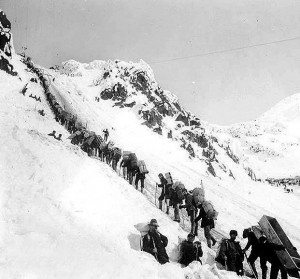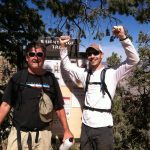Archive for September, 2015
Rebecca Zeeuw: Using Linkedin for business
EMA Sales person, farmer, mother, wife,  and astute business woman; Rebecca and Eddie discuss her experiences and expertise at using Linkedin to build business relationships. Great show.
and astute business woman; Rebecca and Eddie discuss her experiences and expertise at using Linkedin to build business relationships. Great show.
Using Linkedin to grow your business: Rebecca Zeeuw
Rebecca Zeeuw is a busy person. She runs a successful upstate NY far m, is a mother, and sells Variable Frequency Motor drives for EMA New York.
m, is a mother, and sells Variable Frequency Motor drives for EMA New York.
She’s widely recognized as an expert resource in this field. Rebecca has used Linkedin and other social media to build relationships all over the world. Along with sharing her social media methods, Rebecca has great insights about sales, business relationships, and balancing her professional and personal life.
Don’t miss this broadcast on Saturday September 12 at 11 AM on Atlanta’s Biz 1190 AM radio. For those of you not in the Atlanta area, you can catch the live stream on biz1190.com
Driven to Business hosted by Eddie Mayfield is heard every Saturday on Atlanta’s business voice, WAFS, Biz 1190 AM. The show is streamed live on biz1190.com and podcast on eddiemayfield.com and itunes.
Simply the best business radio in Atlanta.. Driven to Business.
Unstable Times.. and opportunities.. Eddie Mayfield
 One day in 1896 two Indians, Skookum Jim Mason, and Tagish Charlie, along with a White man named George Carmack discovered gold in Rabbit creek, near the remote Yukon town of Dawson. When the word got out, locals rushed out to stake claims. Later known as the Klondike Kings, many of them became very wealthy.
One day in 1896 two Indians, Skookum Jim Mason, and Tagish Charlie, along with a White man named George Carmack discovered gold in Rabbit creek, near the remote Yukon town of Dawson. When the word got out, locals rushed out to stake claims. Later known as the Klondike Kings, many of them became very wealthy.
Almost one year later, the steamer Portland arrived in Seattle with over a ton of Yukon gold aboard. The word got out, and the Klondike Gold Rush began.
It’s difficult to imagine the chaos that followed. Over 100,000 men and women set out for the Yukon, most of them ill prepared for what they would face. Only 30,000 got there.
I’ve been to Skagway, the beginning of the White Pass trail, where most of the gold seekers passed on their way to Dawson. The Canadian Mounties required each person to carry a year’s supply of food, which made the arduous journey over the pass a backbreaking affair. Thieves and con men took full advantage of the tired inexperienced travelers, and exhaustion, cold, disease, and malnutrition claimed the lives of many.
Of the 30,000 that did get to Dawson, very few found gold.
But, there were fortunes made during the Klondike Gold Rush, and not just from gold. One notable example is a German immigrant named Fredrick Drumph, who opened a restaurant and hotel serving the gold seekers. Drumph took his earnings, moved to New York, invested in real estate, and changed his name to Trump. He’s the grandfather of billionaire Donald Trump.
A young man named Jack London came looking for gold, but instead made a fortune writing about his exploits. A lady named Martha Black ran a sawmill, and eventually became a wealthy member of the Canadian parliament. There are many other similar stories.
Great lessons are to be learned from this. When I lived in Texas friends of mine in the oil business offered valuable counsel. They said that whenever I heard about an oil field producing a lot of barrels per day; get in the barrel business.
The other great advice I got from the entrepreneur I worked for there was this: “every boom has a bust.”
So, what can we learn from the Klondike experience?
- In a boom, the first people in often make the direct money
- All booms end
- The indirect money often exceeds the direct.
Let’s use the oil fields as an example. It is possible for an individual to drill for oil, and sell what he finds, but most that try that fail. Most of the opportunities are indirect.
Generally, the oilfield segments are described as upstream, midstream, and downstream.
The upstream is where the oil is drilled and produced. The midstream is how it gets to market, whether by rail, trucks, or pipelines. The downstream is refineries, packagers, distributors, etc.
Each segment can provide great business opportunities for small businesses, in both bad times and good. In fact, unstable times are often good for small, well managed nimble companies with expertise.
During unstable times, large companies often elect to outsource a number of functions. This can present great opportunities for small skilled operations. Our company, EMA, often sees our service revenues climb during times of economic instability.
Companies may elect to use old equipment in lieu of expending capital, and if you have the ability to keep that older equipment running, then you have a built in marketplace.
Modern technology has really leveled the playing field for smaller companies to compete, even on a global scale.
Here’s a few hints to help you prosper during instability:
- Use Linkedin, blogs, and Twitter to establish yourself as an expert in your field. Always approach these as the value that you bring to the prospect or customer, not what value they bring you.
- Pursue opportunities to speak at industry gatherings.
- Do webinars and lunch & learns.
Keep in mind that you may well be living in the new normal, and if you’re going to be successful, you must learn to embrace these times.
Eddie Mayfield
Driven to Business, hosted by Eddie Mayfield is heard every Saturday at 11 on Atlanta’s business radio, Biz 1190. The show is streamed live on biz1190.com and podcast on eddiemayfield.com and itunes. Simply the best business radio in Atlanta, Driven to Business.
Unstable Times? Prosper anyhow
 One day in 1896 two Indians, Skookum Jim Mason, and Tagish Charlie, along with a White man named George Carmack discovered gold in Rabbit creek, near the remote Yukon town of Dawson. When the word got out, locals rushed out to stake claims. Later known as the Klondike Kings, many of them became very wealthy.
One day in 1896 two Indians, Skookum Jim Mason, and Tagish Charlie, along with a White man named George Carmack discovered gold in Rabbit creek, near the remote Yukon town of Dawson. When the word got out, locals rushed out to stake claims. Later known as the Klondike Kings, many of them became very wealthy.
Almost one year later, the steamer Portland arrived in Seattle with over a ton of Yukon gold aboard. The word got out, and the Klondike Gold Rush began.
It’s difficult to imagine the chaos that followed. Over 100,000 men and women set out for the Yukon, most of them ill prepared for what they would face. Only 30,000 got there.
I’ve been to Skagway, the beginning of the White Pass trail, where most of the gold seekers passed on their way to Dawson. The Canadian Mounties required each person to carry a year’s supply of food, which made the arduous journey over the pass a backbreaking affair. Thieves and con men took full advantage of the tired inexperienced travelers, and exhaustion, cold, disease, and malnutrition claimed the lives of many.
Of the 30,000 that did get to Dawson, very few found gold.
But, there were fortunes made during the Klondike Gold Rush, and not just from gold. One notable example is a German immigrant named Fredrick Drumph, who opened a restaurant and hotel serving the gold seekers. Drumph took his earnings, moved to New York, invested in real estate, and changed his name to Trump. He’s the grandfather of billionaire Donald Trump.
A young man named Jack London came looking for gold, but instead made a fortune writing about his exploits. A lady named Martha Black ran a sawmill, and eventually became a wealthy member of the Canadian parliament. There are many other similar stories.
Great lessons are to be learned from this. When I lived in Texas friends of mine in the oil business offered valuable counsel. They said that whenever I heard about an oil field producing a lot of barrels per day; get in the barrel business.
The other great advice I got from the entrepreneur I worked for there was this: “every boom has a bust.”
So, what can we learn from the Klondike experience?
- In a boom, the first people in often make the direct money
- All booms end
- The indirect money often exceeds the direct.
Let’s use the oil fields as an example. It is possible for an individual to drill for oil, and sell what he finds, but most that try that fail. Most of the opportunities are indirect.
Generally, the oilfield segments are described as upstream, midstream, and downstream.
The upstream is where the oil is drilled and produced. The midstream is how it gets to market, whether by rail, trucks, or pipelines. The downstream is refineries, packagers, distributors, etc.
Each segment can provide great business opportunities for small businesses, in both bad times and good. In fact, unstable times are often good for small, well managed nimble companies with expertise.
During unstable times, large companies often elect to outsource a number of functions. This can present great opportunities for small skilled operations. Our company, EMA, often sees our service revenues climb during times of economic instability.
Companies may elect to use old equipment in lieu of expending capital, and if you have the ability to keep that older equipment running, then you have a built in marketplace.
Modern technology has really leveled the playing field for smaller companies to compete, even on a global scale.
Here’s a few hints to help you prosper during instability:
- Use Linkedin, blogs, and Twitter to establish yourself as an expert in your field. Always approach these as the value that you bring to the prospect or customer, not what value they bring you.
- Pursue opportunities to speak at industry gatherings.
- Do webinars and lunch & learns.
Keep in mind that you may well be living in the new normal, and if you’re going to be successful, you must learn to embrace these times.
Eddie Mayfield
Driven to Business, hosted by Eddie Mayfield is heard every Saturday at 11 on Atlanta’s business radio, Biz 1190. The show is streamed live on biz1190.com and podcast on eddiemayfield.com and itunes. Simply the best business radio in Atlanta, Driven to Business.




